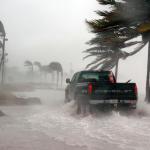If you think biotech crops have some role to play in fighting global hunger, the Non-GMO Project is here to set you straight.
climate change
A slew of recent studies has suggested that climate change is increasing the number of heart attacks worldwide.
Join our directors of bio-sciences, chemistry, and medicine Cameron English, Dr. Josh Bloom, and Dr. Chuck Dinerstein as they break down these stories on episode 20 of the Science Dispatch podcast.
Woodstock 99 is remembered as one of the most disastrous events in music history.
“Rise in heart disease may be explained by extreme weather conditions,” ABC News reported last week.
All of “God’s creatures,” from the viruses and fungi to humans, have, through the forces of evolution, developed biological niches – the range they occupy across the earth and where we stand in the food
Join ACSH directors of bio-sciences and medicine Cameron English and Dr. Chuck Dinerstein as they break down these stories on episode 14 of the Science Dispatch podcast:
“Protection of children’s health requires that health professionals understand the multiple harms to children from climate change and air pollution and use available strategies to reduce these harms.”
Like most people, I harbor a set of pretty standard concerns: paying bills, balancing work and family life, and protecting my son from crazy people who “identify” as












